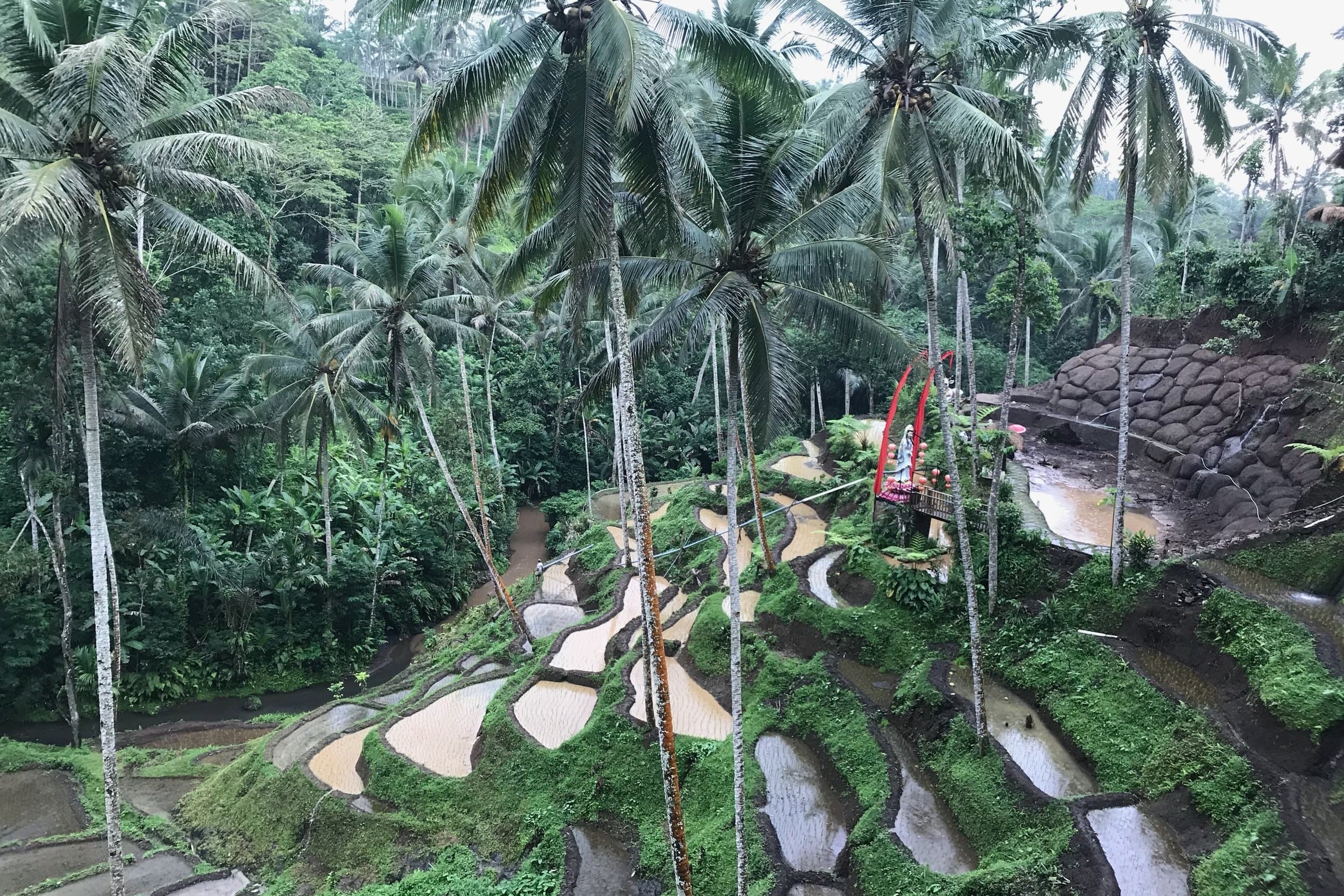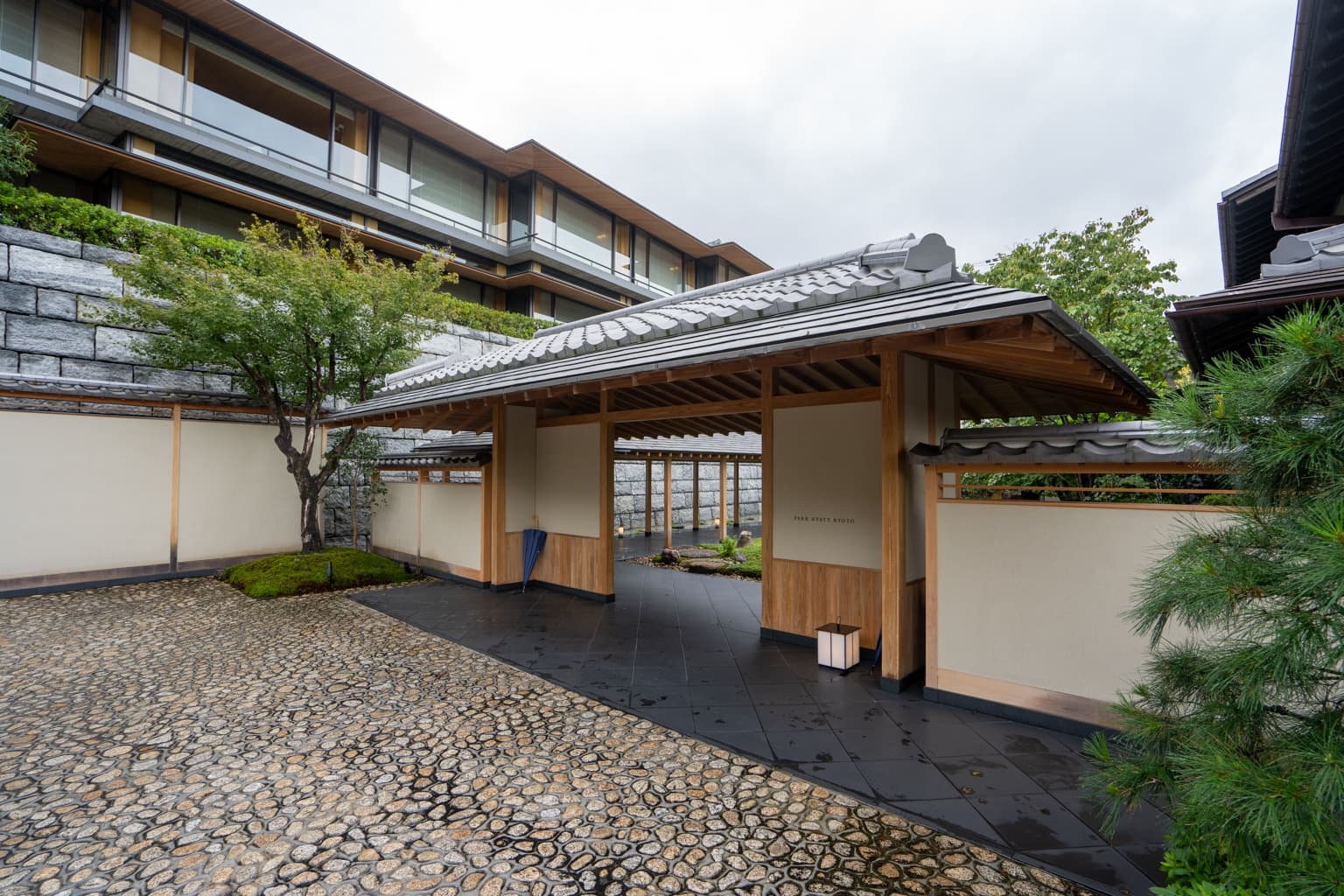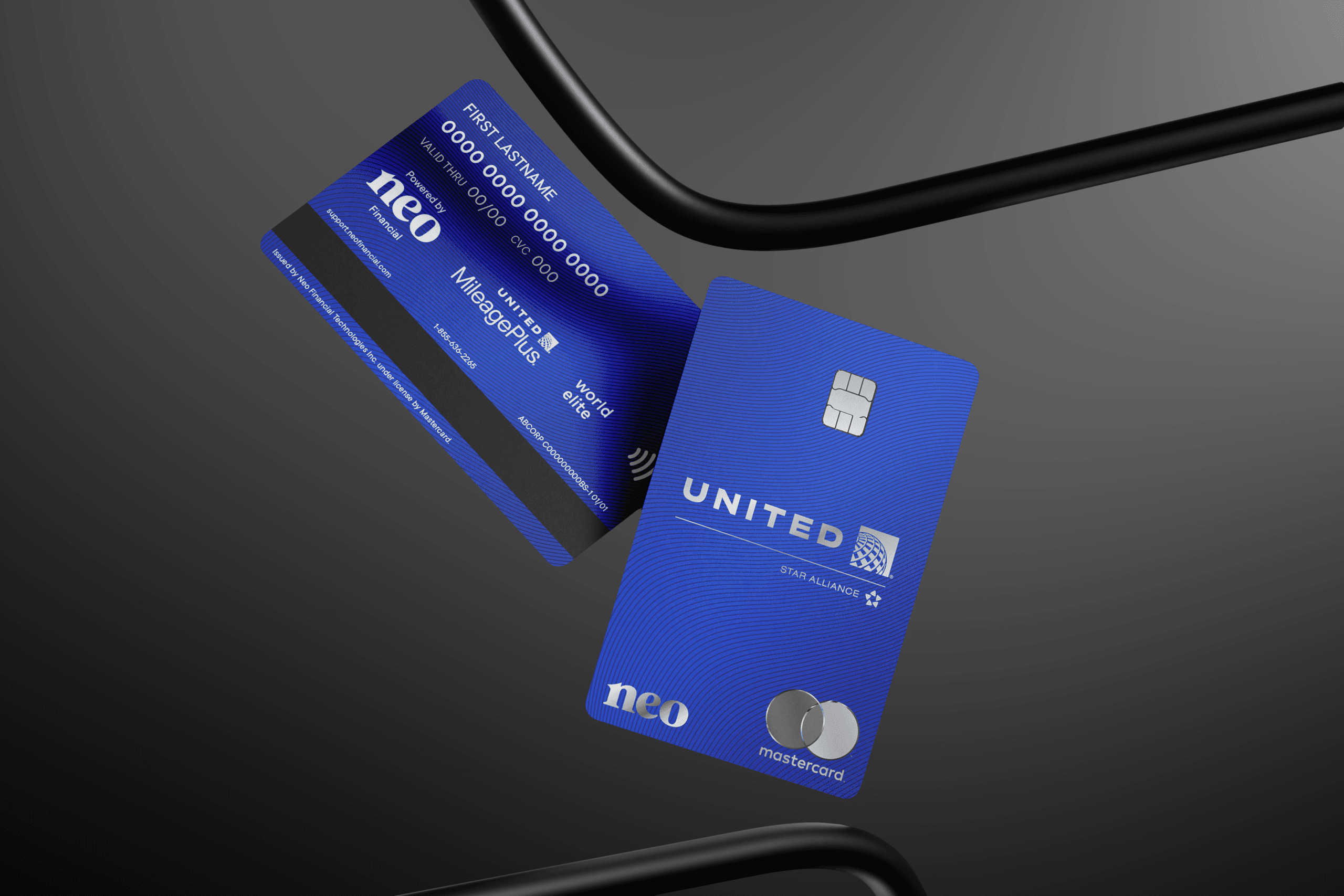Ubud Highlights

We had a three-day stay in Ubud, a lively town in the densely wooded inland portion of Bali, before moving out to the Ritz-Carlton on the island’s southern coastline. There’s a huge variety of places to visit around here, so in this post I’ll share with you some of the highlights.
Unless you decide to rent a scooter, your primary method of transportation in Bali is going to be taxis and car services. Taxi fares are very reasonable, and you’ll generally find that most drivers charge around the same prices and aren’t really “out to get you”. Hiring a taxi for a full day usually costs US$45–55 (gas included) which represents a great deal in my books.
The town of Ubud itself (as well as the highlights within, such as the Sacred Monkey Forest and the Campuhan Ridge Walk) is decently walkable, whereas you’ll definitely want to hire a car for some of the more distant locations.
Sacred Monkey Forest
Ubud’s Sacred Monkey Forest is located immediately south of the city centre, with its northern entrance opening up onto the city’s main drag. My suggestion is to get dropped off at the park’s southern entrance and make your way through, so that you can get straight to exploring the rest of Ubud immediately after your visit.
The park showcases the region’s spectacular natural features, including its rivers, valleys, and waterfalls. A series of paths and stairways bring you as close to the action as possible, providing you with countless opportunities for that perfect Instagram photo.

Sacred Monkey Forest

Sacred Monkey Forest
Of course, the highlight of the park is the hundreds of free-roaming Balinese long-tailed monkeys that inhabit it, loitering along the paths and swinging amongst the trees. They’re largely a friendly and curious bunch, although the park encourages you to be sensible and refrain from provoking them, baring your teeth, feeding them snacks, etc.

Sacred Monkey Forest – Caught in the act!

Sacred Monkey Forest – Mother and her little one
You’ll find the monkeys all over the place, from the outdoor amphitheater to the rocks on the river. When the park attendants call for feeding time, all the monkeys flock over and it’s quite a sight to behold.

Sacred Monkey Forest – Feeding time!
I learned something new about myself during my time here: I’m apparently some sort of monkey magnet. See, you can pay the park attendants US$1 a pop for them to help entice the monkeys to stand on your shoulders; when I tried it, two overzealous monkeys ended up grappling with each other in a bid to obtain the food that I was holding in my hand.
And later, Jessica and I were watching a family of monkeys do their thing, when suddenly the child monkey pranced onto my back like it was no big deal. Only when I moved away did he go into an absolute frenzy, squealing in the direction of his hapless parents. The poort thing!
Campuhan Ridge Walk
After putting my monkey-whispering skills to good use, we made our way into town via the northern exit of the Sacred Monkey Forest.
Along the streets of Ubud, you’ll find a variety of cafes, restaurants, and shops, many of which are catered towards the hordes of tourists that flock to this area. It’s up to you whether you want to try the local interpretation of spaghetti bolognaise, or search a little harder for a place serving proper Balinese and Indonesian fare.

Ubud – Temples

Ubud – Main street
The Campuhan Ridge Walk is another worthwhile undertaking when you’re in Ubud. (Side note: The Indonesian “c” is pronounced like a “ch”, so this place is pronounced “Champuhan”.) Located a few minutes west of Ubud city centre, the hike takes about 30 minutes to complete, and brings you across the stunning hills and valleys of Campuhan Ridge, eventually ending at the Campuhan Sacred Hills.
The trek begins with a gruelling series of steps, before ambling across the ridges and treating you with panoramic views of the surrounding area. The weather was strikingly beautiful when we were up here.

Campuhan Ridge Walk

Campuhan Ridge Walk
Then it’s another kilometre of uphill hiking before you arrive at the summit, where the killer views of the endless rice fields up here and a humdinger of a hilltop breeze make it all worthwhile.

Campuhan Sacred Hills
Tegenungan Waterfall
The next day, Jessica and I embarked further afield. We made use of the services of Wayan Suweca, who operates Bali Hidden Paradise Tours, and we couldn’t have had a better time with him. He was proactive in making sure we got to see everything we wanted to see, he took the time to show us a few niche spots along the way, and he graciously refused to be paid for the whole day when the weather forced us to cut our day trip short.
First on our list was the Tegenungan Waterfall, a prominent member among the dozens of Instagram-famous natural wonders that brought Bali to the forefront of the travelling public’s consciousness. To see the spectacle up close, you hike down via a series of hillside steps, where several viewing platforms provide a grand view of the waterfall from afar.

Tegenungan Waterfall
Up close, the waterfall is equally captivating. A few flights of stairs lead you to the top of the falls, but getting over there is exhilarating in itself, since the only path across the fast-flowing river rapids is a makeshift bridge made out of a few logs of wood.

Tegenungan Waterfall
Despite being a festive month, December is unfortunately smack dab in the middle of Bali’s rainy season, so it was no surprise when the heavens opened just as we were halfway up to the top of Tegenungan.
An almighty rainstorm left us completely drenched and hampered our ability to catch the best views from the top of the waterfall, and if it weren’t for our heroic Wayan who came rescuing us with umbrellas, who knows how long we would’ve been stuck up there!
Tegalalang Rice Terrace
Next up with Wayan, it was time for yet another hike.
Rice production is one of the most important industries in Bali; as with everything on this island, though, the rice paddies somehow manage to look as though they’re straight out of a fantasy land. One of the best examples of this are the rice terrace at Tegalalang, whose cascading rice fields give the appearance of a massive green layer cake.

Tegagalang Rice Terrace – Entrance
You’re dropped off along the main road at the edge of the rice terrace, and your challenge is to climb down to the valley and then back up on the other side. It’s much less strenuous of a trek than Campuhan Ridge, but the path is muddier and more rugged. If it’s raining (as it was when we visited), negotiating the soft muddy paths can be a tough proposition, but absolutely still rewarding when you make it to the top on the other side.

Tegalalang Rice Terrace

Tegalalang Rice Terrace
I’m not sure how much rice production actually goes on at Tegalalang these days; it definitely seems as though the tourist dollars are way more lucrative, given how many cafes and restaurants have opened along the main road.
We stopped at one of these places to sample the local luwak coffee – a type of coffee that’s produced from the partly-digested coffee beans from within the droppings of an Indonesian cat-like animal. It’s one of the most expensive coffees in the world, and its smoky, decadent tones certainly tasted as such.

An Asian palm civet, the cat-like animal responsible for digesting luwak coffee beans

Luwak coffee beans, hand-picked from the droppings of the Asian palm civet
Conclusion
Does Bali live up to the hype? It depends on what you’re looking for, but the answer is mostly yes. If you’re all about the outdoors and exploring the natural world around us, Bali is straight up your alley, and the notable sites around Ubud in particular should be top of your list. If you’re someone who needs a little more action in your travels, there’s countless treks, hikes, and climbs to keep you occupied.
And even if you’re a die-hard city person like myself, there’s something to be said for getting away to Bali’s unique brand of beautiful, if only for a few days. I, for one, can’t wait to go back.

First-year value
$336
Monthly fee: $15.99
• Earn 1,250 points per month upon spending $750 per month for 12 months
Earning rates
Key perks
- Transfer to airline and hotel partners

Monthly fee: $15.99
• Earn 1,250 points per month upon spending $750 per month for 12 months
Earning rates
Key perks
- Transfer to airline and hotel partners





